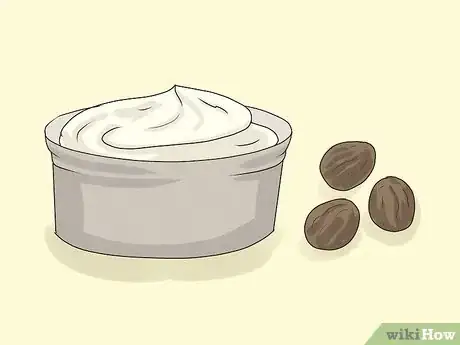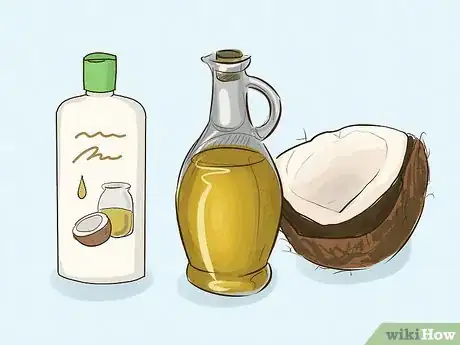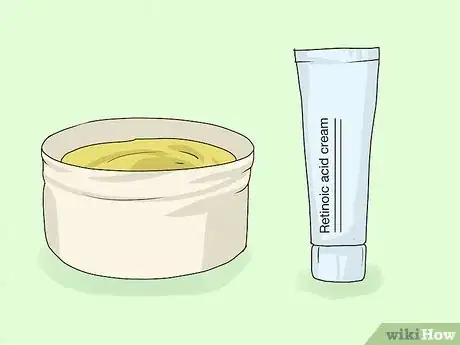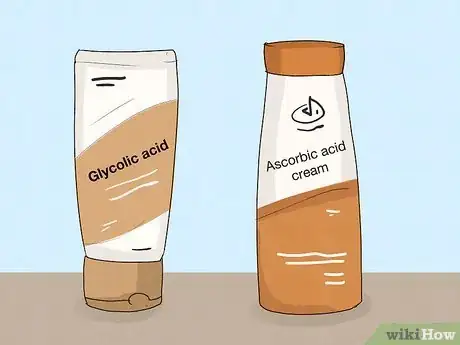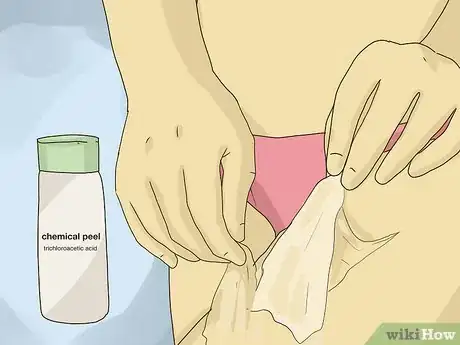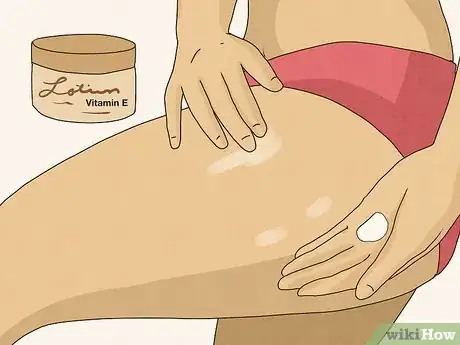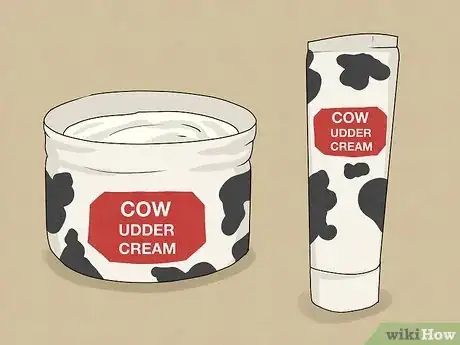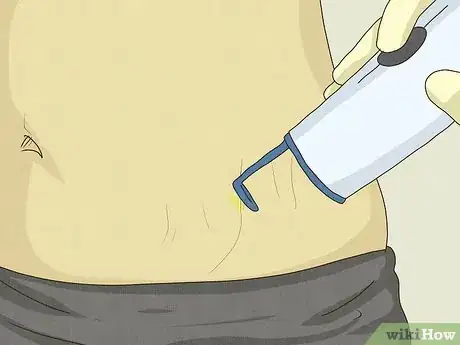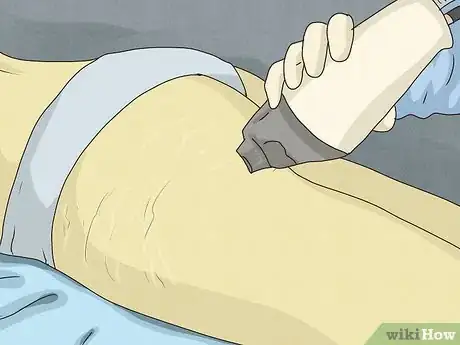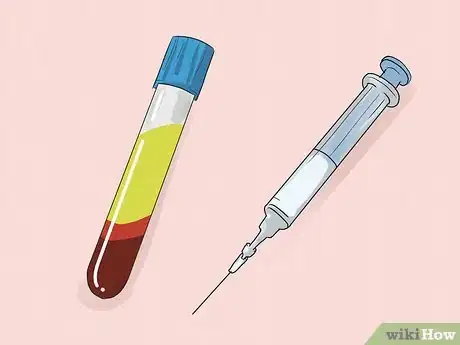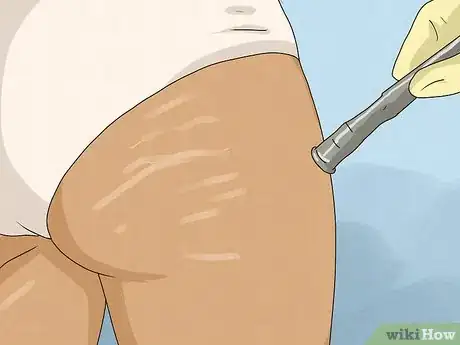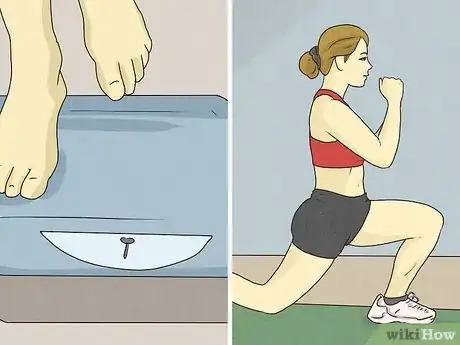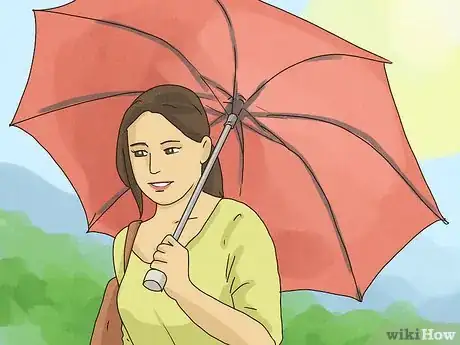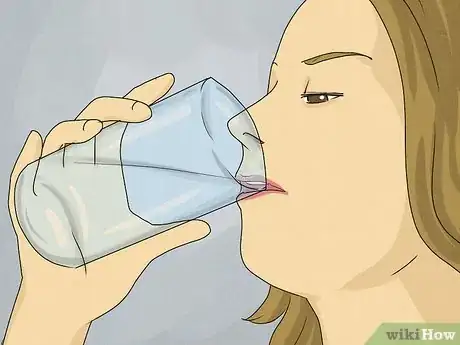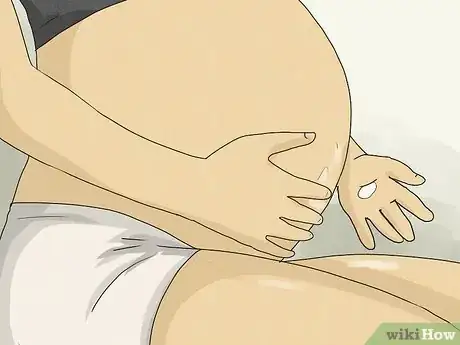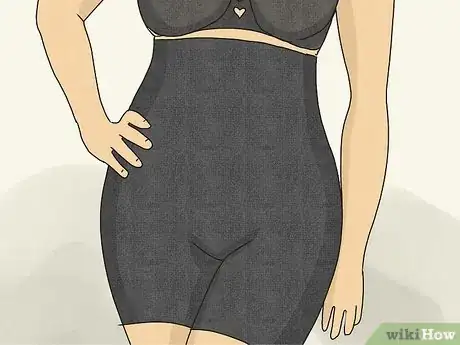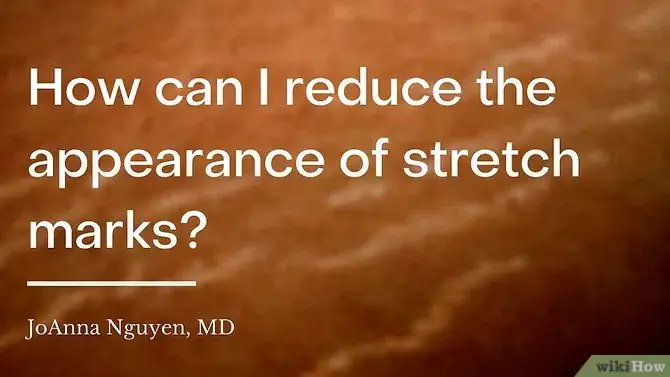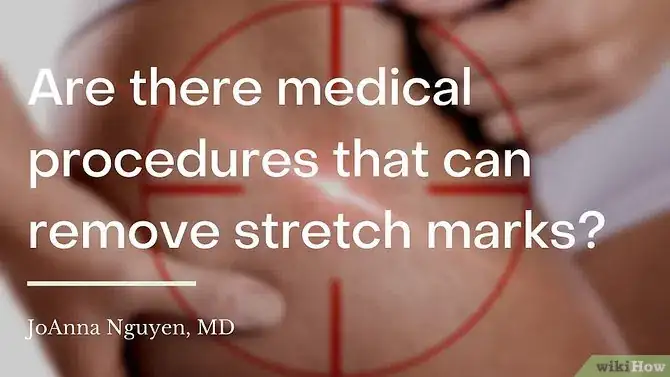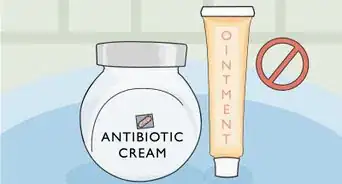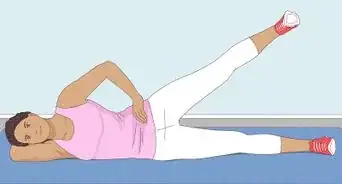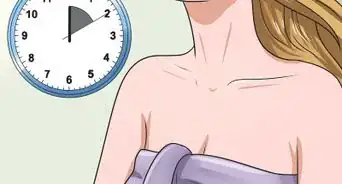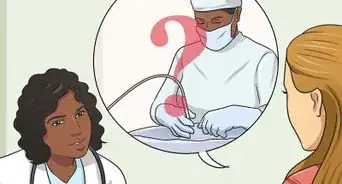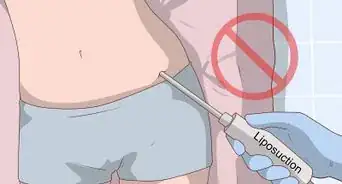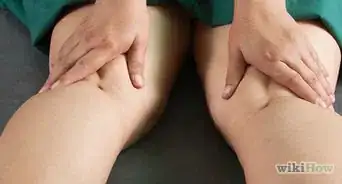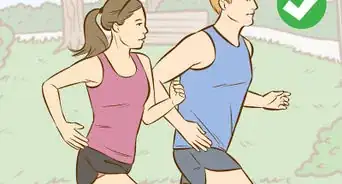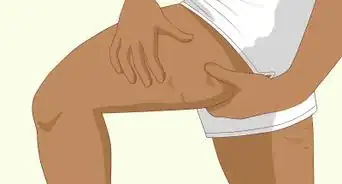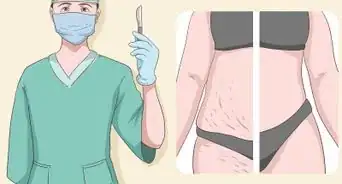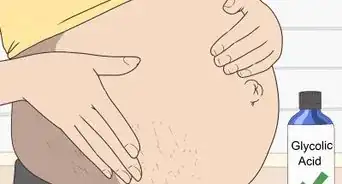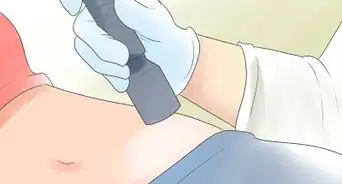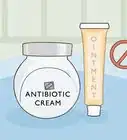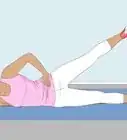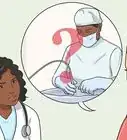This article was co-authored by Mohiba Tareen, MD. Mohiba Tareen is a board certified Dermatologist and the founder of Tareen Dermatology located in Roseville, Maplewood and Faribault, Minnesota. Dr. Tareen completed medical school at the University of Michigan in Ann Arbor, where she was inducted into the prestigious Alpha Omega Alpha honor society. While a dermatology resident at Columbia University in New York City, she won the Conrad Stritzler award of the New York Dermatologic Society and was published in The New England Journal of Medicine. Dr. Tareen then completed a procedural fellowship which focused on dermatologic surgery, laser, and cosmetic dermatology.
There are 14 references cited in this article, which can be found at the bottom of the page.
wikiHow marks an article as reader-approved once it receives enough positive feedback. In this case, several readers have written to tell us that this article was helpful to them, earning it our reader-approved status.
This article has been viewed 8,398,745 times.
If you're tired of having stretch marks, you're not alone! Many people, women especially, experience stretch marks in their lifetimes. Stretch marks can occur during sudden changes in body size, such as during pregnancy, puberty, or rapid weight gain or loss. Luckily, you can use topical treatments and medical interventions to help decrease the appearance of stretch marks.
Steps
Using Topical Treatments
-
1Apply shea butter. One option that some people have luck with is shea butter. It may reduce inflammation and it provides lots of hydration for your skin. Try pure shea butter, or pick a lotion with shea butter in it that you can apply every day.
- Shea butter is a nut derivative, so it isn’t a good idea to use shea butter if you’re allergic to nuts.[1]
-
2Use coconut oil. Moisturizers or lotions with a coconut oil base are excellent for hydrating skin and reducing stretch marks.[2] Pure coconut oil can be purchased in the cooking oil section of any grocery store. Massage your skin with solid coconut oil or a coconut oil-based lotion bar.Advertisement
-
3Try retinoic acid cream. Retinoic cream has been shown to help with stretch marks.[3] However, itworks best on ones that have just appeared.It likely helps byincreasing collagen production,which in turn helps with the appearance of your skin.
Retinoic Acid Cream Instructions and Warnings
Do not use these products if you are breastfeeding or pregnant, as they can have bad side effects for your baby.
You'll need a prescription to get products such as Retin-A, Renova, and/or Avita, but other products are available over the counter.
Your doctor will tell you how often to apply these products. You should read the directions on the container for any over-the-counter products. -
4Try a combination of glycolic acid and ascorbic acid. These creams together can help with the elasticity of the skin and reduce the appearance of stretch marks over time. Generally, these creams canbegin to work in as few as three monthswhen you apply them every day.[4]
- These ingredients are available over the counter, but you may need to buy them separately.
-
5Use a chemical peel containing trichloroacetic acid. Chemical peels can also be helpful in reducing the appearance of stretch marks. Generally, though, they work best in conjunction with other treatments, such as microdermabrasion.[5]
- Usually, it's best to let a professional perform a chemical peel,although you can find over-the-counter products.
- Once you have the peel done, your skin will peel off over the course of a few days, which can reduce the color of your stretch marks. You may need more than one treatment.
- Usually, it's best to
-
6Minimize the appearance of stretch marks with vitamin E. Applying a lotion every day that has vitamin E may help reduce your stretch marks. It's not likely to make them go away, but it can help improve how your skin looks over time.[6]
- Vitamin E can help stretch marks in a few ways. It helps protect your skin from damage, which can reduce the appearance of the marks. Also, it is also anti-inflammatory and an antioxidant.[7]
- Vitamin E creams are available over the counter.
-
7Try cow udder cream. Udder creams, such as Bag Balm and Udderly Smooth, are intensely hydrating lotions originally designed for use on cracked and irritated cow udders. These lotions are now widely available in drug stores for use as skin lotions, and they are especially useful for breastfeeding women and people with stretch marks. Udder creams can be used regularly to both reduce stretch marks and prevent new stretch marks from forming.
Trying Medical Interventions
-
1Ask about a pulsed dye laser for better elasticity. This type of laser treatment, also known as vascular laser treatment, may help reduce the appearance of stretch marks. It also increases collagen production, making your skin more elastic.[8]
- Treatments begin at about $250 per session. It may take three to six sessions before you begin to see improvement, and more sessions may be necessary depending on the size of the area you are treating.
- You won't really have any recovery time, but you should stay out of the sunfor a bit after a treatment.
-
2Discuss fractional laser treatment to help blend in stretch marks. Fractional laser therapy focuses on resurfacing smaller areas. The laser is aimed at the edges of stretch marks, smoothing over the surface of the skin.[9] It adjusts the texture of the affected areas, making it appear more similar to the rest of your skin.[10]
- This type of treatment can cost anywhere from $150 to $4,000, and you'll also likely need multiple sessions (at least three), though how many depends on how bad your stretch marks are. You'll need to stay out of the sun for a few daysafter the treatment.
- This type of treatment can cost anywhere from $150 to $4,000, and you'll also likely need multiple sessions (at least three), though how many depends on how bad your stretch marks are. You'll need to
-
3Get an injection of platelet-rich plasma for all types of stretch marks. With this technique, the doctor uses your own blood to treat you. They pull out the plasma and inject it into your stretch marks. In turn, the plasma increases skin growth and collagen production.[11]
-
4Ask about microdermabrasion for all types of stretch marks. Microdermabrasion basically means blasting your stretch marks with a fine crystalline powder. It's sort of like using sandpaper on your skin, but it is much gentler than it sounds. It helps buff away some of the appearance of stretch marks.
Microdermabrasion Treatment Details
Average cost: $137
Risks and Side Effects: redness, swelling, flaky skin in the days following the treatment, bruising, increased sensitivity to sun exposure
Procedure: Microdermabrasion procedures involve either a small hand-held vacuum that streams tiny exfoliating crystals across your skin or a diamond-tip wand that exfoliates your skin.[14]
Making Lifestyle Changes
-
1Maintain a healthy weight. The best way to not have stretch marks is to not get them in the first place. Try maintaining a healthy weight by exercising at least 150 minutes a week and eating a healthy diet full of fruits, veggies, whole grains, and lean protein.[15]
Foods to Eat to Help Stretch Marks Fade
Eating a nutrient-rich diet will ensure that your skin is getting the proper nutrition it needs to repair itself.
Legumes: beans, peas, lentils
Foods with Zinc: peanuts, tofu, nuts, oatmeal, seeds
Fruits and veggies: oranges, avocados, blueberries, melons, sweet potatoes, cucumbers, tomatoes, leafy green vegetables, broccoli, bell peppers
Foods with Omega-3 fatty acids: salmon, sardines[16] -
2Avoid sun exposure. Being out in the sun can make stretch marks more noticeable. If you don't want to avoid the sun, simply cover up areas with stretch marks when you're outside.[17]
-
3Stay hydrated. Hydrated skin is more elastic, so staying hydrated can help prevent you from getting new stretch marks. Drinking about2 litres (68 fl oz) of water a daycan help keep you hydrated.[18]
-
4Moisturize your skin daily. You can prevent or minimize the development of new stretch marks bykeeping your skin hydrated.This is especially important for pregnant women or people who are losing or gaining weight. Apply moisturizing oils and creams at least once a day, especially if you are pregnant.[19]
- Apply moisturizers frequently enough that your skin does not begin to feel itchy or dry. These sensations are signs that your skin is dehydrated and might be starting to stretch.
- If you are pregnant, use safe products such as olive oil, cow udder cream, and shea oil or shea butter cream.
-
5Wear supportive underwear. Gently supportive undergarments that cover your belly and thighs can be helpful for preventing or reducing stretch marks, especially if you are overweight. This is also a good alternative to expensive cosmetic surgeries, especially if the stretch marks cover a large area of skin.
Expert Q&A
-
QuestionHow can I reduce the appearance of stretch marks?
 JoAnna Nguyen, MDDr. Joanna Nguyen is a Board-Certified Plastic and Reconstructive Surgeon based in Los Angeles, California. Dr. Nguyen holds dual degrees in Psychology and Biology with a Specialization in Neuroscience from Boston University and completed her medical training at the University of Miami Miller School of Medicine. She then went on to complete comprehensive training in plastic surgery at the University of Southern California. Dr. Nguyen is a practicing plastic surgeon in Los Angeles, California and specializes in eyelid surgery, labiaplasty and breast augmentation. She is a diplomat of the American Board of Plastic Surgery.
JoAnna Nguyen, MDDr. Joanna Nguyen is a Board-Certified Plastic and Reconstructive Surgeon based in Los Angeles, California. Dr. Nguyen holds dual degrees in Psychology and Biology with a Specialization in Neuroscience from Boston University and completed her medical training at the University of Miami Miller School of Medicine. She then went on to complete comprehensive training in plastic surgery at the University of Southern California. Dr. Nguyen is a practicing plastic surgeon in Los Angeles, California and specializes in eyelid surgery, labiaplasty and breast augmentation. She is a diplomat of the American Board of Plastic Surgery.
Board Certified Plastic Surgeon & Reconstructive Surgeon
-
QuestionAre there medical procedures that can remove stretch marks?
 JoAnna Nguyen, MDDr. Joanna Nguyen is a Board-Certified Plastic and Reconstructive Surgeon based in Los Angeles, California. Dr. Nguyen holds dual degrees in Psychology and Biology with a Specialization in Neuroscience from Boston University and completed her medical training at the University of Miami Miller School of Medicine. She then went on to complete comprehensive training in plastic surgery at the University of Southern California. Dr. Nguyen is a practicing plastic surgeon in Los Angeles, California and specializes in eyelid surgery, labiaplasty and breast augmentation. She is a diplomat of the American Board of Plastic Surgery.
JoAnna Nguyen, MDDr. Joanna Nguyen is a Board-Certified Plastic and Reconstructive Surgeon based in Los Angeles, California. Dr. Nguyen holds dual degrees in Psychology and Biology with a Specialization in Neuroscience from Boston University and completed her medical training at the University of Miami Miller School of Medicine. She then went on to complete comprehensive training in plastic surgery at the University of Southern California. Dr. Nguyen is a practicing plastic surgeon in Los Angeles, California and specializes in eyelid surgery, labiaplasty and breast augmentation. She is a diplomat of the American Board of Plastic Surgery.
Board Certified Plastic Surgeon & Reconstructive Surgeon
-
QuestionHow can I cover up stretch marks and blemishes?
 Mohiba Tareen, MDMohiba Tareen is a board certified Dermatologist and the founder of Tareen Dermatology located in Roseville, Maplewood and Faribault, Minnesota. Dr. Tareen completed medical school at the University of Michigan in Ann Arbor, where she was inducted into the prestigious Alpha Omega Alpha honor society. While a dermatology resident at Columbia University in New York City, she won the Conrad Stritzler award of the New York Dermatologic Society and was published in The New England Journal of Medicine. Dr. Tareen then completed a procedural fellowship which focused on dermatologic surgery, laser, and cosmetic dermatology.
Mohiba Tareen, MDMohiba Tareen is a board certified Dermatologist and the founder of Tareen Dermatology located in Roseville, Maplewood and Faribault, Minnesota. Dr. Tareen completed medical school at the University of Michigan in Ann Arbor, where she was inducted into the prestigious Alpha Omega Alpha honor society. While a dermatology resident at Columbia University in New York City, she won the Conrad Stritzler award of the New York Dermatologic Society and was published in The New England Journal of Medicine. Dr. Tareen then completed a procedural fellowship which focused on dermatologic surgery, laser, and cosmetic dermatology.
FAAD Board Certified Dermatologist Cosmetically, sunless tanner is a great option. It will kind of work like camouflage for your skin. Also, be sure to moisturize regularly to improve the overall appearance of your skin, If you use a lot of moisturizer, your skin will be more hydrated and elastic, so it will have a better texture and look.
Cosmetically, sunless tanner is a great option. It will kind of work like camouflage for your skin. Also, be sure to moisturize regularly to improve the overall appearance of your skin, If you use a lot of moisturizer, your skin will be more hydrated and elastic, so it will have a better texture and look.
Warnings
- Most treatments are partially effective, at best. Keep your expectations realistic, as stretch marks are permanent.⧼thumbs_response⧽
- Stretch marks can be especially troublesome and difficult to minimize if you have lost a large amount of weight. These marks tend to appear over large areas of the abdomen and thighs. In these cases, using plenty of moisturizer every day is a good option, especially while you are actively losing weight.⧼thumbs_response⧽
References
- ↑ Mohiba Tareen, MD. FAAD Board Certified Dermatologist. Expert Interview. 26 March 2020.
- ↑ https://parenting.firstcry.com/articles/coconut-oil-for-stretch-marks-during-pregnancy-benefits-and-usage/
- ↑ https://www.ncbi.nlm.nih.gov/pubmed/8624148
- ↑ https://www.ncbi.nlm.nih.gov/pubmed/9723049
- ↑ https://www.ncbi.nlm.nih.gov/pmc/articles/PMC4924406/
- ↑ http://goaskalice.columbia.edu/answered-questions/stretch-marks
- ↑ http://lpi.oregonstate.edu/mic/health-disease/skin-health/vitamin-E
- ↑ http://www.ncbi.nlm.nih.gov/pubmed/17214676
- ↑ http://www.ncbi.nlm.nih.gov/pmc/articles/PMC3229942/
- ↑ https://www.thebump.com/a/stretch-marks
- ↑ https://www.thebump.com/a/stretch-marks
- ↑ http://www.howardluksmd.com/sports-medicine/prp-injection-procedure-and-recovery-time/
- ↑ http://www.howardluksmd.com/sports-medicine/prp-injection-procedure-and-recovery-time/
- ↑ https://www.plasticsurgery.org/cosmetic-procedures/microdermabrasion/procedure
- ↑ http://goaskalice.columbia.edu/answered-questions/stretch-marks
- ↑ https://www.eatthis.com/foods-to-fade-stretch-marks/
- ↑ http://goaskalice.columbia.edu/answered-questions/stretch-marks
- ↑ http://americanpregnancy.org/your-pregnancy/prevent-pregnancy-stretchmarks/
- ↑ Mohiba Tareen, MD. FAAD Board Certified Dermatologist. Expert Interview. 26 March 2020.
About This Article
To get rid of stretch marks, apply shea butter or coconut oil to your stretch marks every day, which will hydrate your skin so your stretch marks fade. You can also try applying a combination of glycolic acid and ascorbic acid to your stretch marks once a day to improve your skin's elasticity and reduce the appearance of marks. In addition to using topical treatments, remember to stay out of the sun and drink plenty of water every day to prevent your stretch marks from getting worse. To learn how to use medical treatments to get rid of stretch marks, scroll down!
